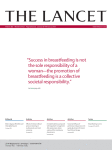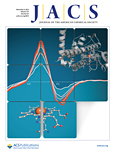
Four expressions of concern in the journal Diabetes have turned into retractions for Mario Saad, a move which he had tried to stop with a lawsuit.
Last August, a judge dismissed Saad’s suit against the American Diabetes Association, which publishes Diabetes, concluding that the expressions of concerns on the papers were not defamation, but part of an “ongoing scientific discourse.” Now, after an investigation at the University of Campinas in Brazil, where Saad is based, and an assessment from an ADA ethics panel (which overturned some of Unicamp’s recommendations), the journal has added to that discourse by turning the EOCs into retractions — and flagging two more of Saad’s papers with EOCs.
Together, the retracted papers have been cited more than 600 times.
As the retraction notes explain, Continue reading Lawsuit couldn’t stop four retractions for diabetes researcher


 The authors of a paper on a mechanism for potential cancer therapies are retracting it after realizing they published some proprietary findings “without permission and agreement from St. Jude Children’s Research Hospital.”
The authors of a paper on a mechanism for potential cancer therapies are retracting it after realizing they published some proprietary findings “without permission and agreement from St. Jude Children’s Research Hospital.”



